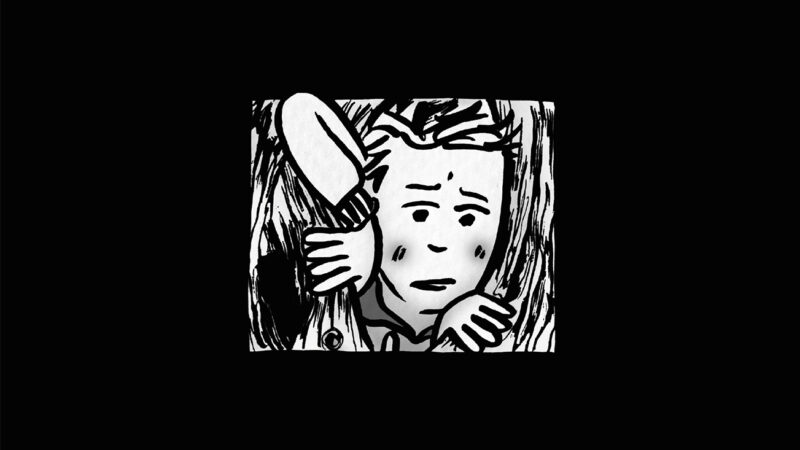Karen’s story
Karen is a medical student and is in her final year of studying before she graduates. Karen has endometriosis and has experienced challenging symptoms and circumstances throughout her education, both in school and university. Below, Karen discusses her experiences and shares her story on managing this chronic condition.

Karen, endometriosis and education
“Dealing with the symptoms of endometriosis, such as extremely painful periods, has affected my education in various ways. From missing school when I was younger, to missing lectures when I began university, managing ill-health in education (and in general) has not been easy. I’ve faced many barriers to getting support in both medical and educational contexts.
I’ve had GPs refuse to refer, even going as far as making me fill out a mental health questionnaire to prove to me that I need antidepressants for my pain, not painkillers stronger than paracetamol or ibuprofen. Things did not improve too much when I eventually accessed tertiary care (and faced the enduring waiting lists). All of this contributed to the barriers I’ve faced within education, particularly in university.
In trying to seek adjustments within my degree, I was often made to feel that my health experiences were invalid and that I was just being difficult. Yet, I didn’t want to be ‘unreasonable’ or ‘difficult’, I wanted to work together to find a solution. Instead, it felt like it was me against the system and the people representing it, be it the NHS or the university. Needless to say, the trauma was real. It took me a long time to process and to understand that those who made me feel like my health experiences were invalid, were not trying to undermine me – sometimes people just don’t know how to help if the existing framework doesn’t work. I feel that more empathy, kindness, and understanding, coupled with a clear explanation of the options, and limitations of what the system could do, in both education and medical settings, could have really helped.
After struggling continuously with inadequate support, I decided I needed to take a break from my university studies. This was an incredibly tough decision for me as I felt like I was giving up everything I had worked hard for, like I was failing in life. In hindsight, taking a year out was the best thing I could do for both my physical and mental health. It gave me the time to be home with my family, just to be myself – me as a human – not me as a student or patient.
It was a much-needed break for me to see that, in trying to stay afloat – by trying to keep up with my studies but still falling behind; by trying to fight for GP appointments but not getting anywhere after the appointment; by trying to take care of myself but not having the energy to even shower – I ended up achieving less and damaging myself more physically and mentally. In trying to be better, I rendered myself to only the identity of student – who was falling behind, and a patient – who was seen as difficult and failing with her treatment. No wonder I felt like a failure.
In that year of rest, in prioritising myself, I felt more like a person, not just a student or patient. I learnt how to accept and validate myself; I learnt how to listen to my body more – there are often warning signs before a flare up of symptoms, which can be easy to ignore when you are conditioned to do so (just to get by) – and I learnt how to distinguish rest from recovery. Recovery is not rest. In taking time off to recover, I am still fighting a silent battle. Rest is the time I take to spend time with my friends, family, and myself to recharge my energy.
Most importantly, I learnt to adapt to the uncertainty that endometriosis brings, through shifting my perspective. Rather than struggling to accept what’s happening, I ask myself what I need to support myself. I might not be able to change the situation I am in, and I cannot predict the way my condition affects my life and studies, but I can allow myself to feel upset, to feel frustrated, to feel bad for myself on my off days, whilst staying hopeful for the good days. It will pass. If it doesn’t, I have faith in myself that I can develop even more skills and a mindset which will help me adapt to the situation. I can grow beyond the situation.
Although, at times, things have been very difficult for me throughout higher education, I am grateful for the perspective I have gained. I’m now in my final year of medical school and will be graduating in July. As a doctor, I will know first-hand how important it is for patients to feel validated and how, in many ways, this can improve their overall care. More importantly, I recognise that I can be a doctor one day, and a patient the next, and that is all okay. I am more than my occupation, my sickness, or my productivity.”
Karen’s top tips for managing symptoms during your education
Trust that you will find a way to cope
It can feel very overwhelming at times. There are so many resources out there teaching us about resilience, stress, and coping strategies that even helpful resources can feel overwhelming. Always be kind to yourself and remember that even if you don’t feel like you can cope now, you will eventually work things out and find the best way for you to deal with the situation.
Learn when and how to rest
For instance, if you have an idea of when your symptoms will be at their worst, try and schedule recovery AND rest periods around this time. This might be help you to better understand your symptoms, pain patterns and triggers.
Time is an illusion
It is very important to remind ourselves we are not behind. Whilst things can be time-pressured and we might be inclined to push ourselves more, we should be mindful of how much we have been doing at the cost of our health. Even if it takes longer for us to get there, we will. The timeline doesn’t define us or our capabilities.
Karen’s top tips for tutors
Be flexible
Students experiencing illness are not working against you or trying to be difficult. It’s likely that they don’t know what they can and can’t do and they need to understand the procedures that are in place. Explaining this, and allowing for flexibility, can help someone significantly, especially if dealing with illness is new to them (and their family).
Be kind and empathetic above all else
It may be difficult to provide validation if you are struggling to understand what’s happening to a student and are not a medical professional, but this does not mean you should forgo kindness. You can communicate your sympathy while still explaining any limitations in the options available.
Try to understand that certain policies may lead to a student feeling like you are questioning or invalidating their illness and feelings
Provide support, even if it’s just showing recognition of the educational policy limitations in a kind manner. It’s worth bearing in mind that people experiencing illness can sometimes be too unwell to digest complex processes, especially if they result in little help. Kindness and extra support where possible, is required!


